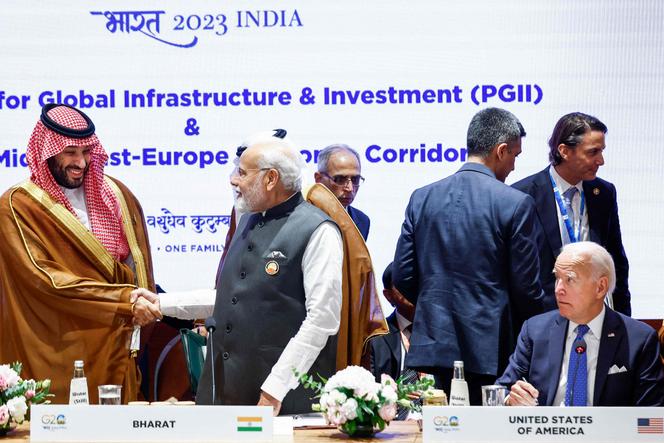


The Saudis are certainly living up to their nickname of "kings of oil." They have regained control of the oil market, with the active support of Russia. And for hard proof, just look at the staggering profits of Saudi Aramco, the national oil company: $161 billion in 2022 (around €150 billion), or as much as the combined profits of France's CAC 40 companies. With the price of a barrel of oil up 25% since the end of June to close on $100, money continues to rain down on a kingdom that is moving step by step toward a more open society and a more diversified economy.
Part of the Vision 2030 plan of Crown Prince Mohammed bin Salman, known as "MBS," this ambition comes at a very high cost, financed by its main resource. Oil, which has been exploited since 1938, has never been so crucial. Riyadh will do everything in its power to extend production as long as possible, relegating the fight against global warming to second place. This was confirmed by Saudi Arabia's Energy Minister on Monday, September 18, at the World Petroleum Congress in Calgary, Canada. Prince Abdelaziz bin Salman, MBS's half-brother, emphasized that energy transition was a "yes," "but we must ensure that energy is always affordable and does not constitute an obstacle to transition, economic prosperity and growth."
Saudi Arabia dominates the Organization of the Petroleum Exporting Countries (OPEC), expanded in 2016 to include 13 other producers led by Russia. Far from breaking up after the Russian invasion of Ukraine, this informal OPEC+ cartel has taken control of the market, abandoned by American shale oil producers whose backers are more eager for dividends than production growth. The Saudis and Russians, the world's largest and second-largest exporters, choked off production this summer to keep the price high, at least $90 per barrel when possible.
The world burns more crude than it pumps, and OPEC itself is forecasting a supply deficit of 2.7 million barrels per day (out of 103 million) between October and December. Saudi Aramco, which extracts 10% of the world's crude, is the only company capable of putting large quantities of additional crude on the market. But Riyadh won't budge unless prices soar to the point of threatening economic growth and it will no doubt reduce output if prices fall back. No American pressure for an increase in production has changed MBS's opinion, including US President Joe Biden's disastrous trip to Jeddah in July 2022.
The kingdom is no longer subservient to the United States, and feels less bound by the "oil for protection" agreement signed in 1945, while demanding an assistance pact from Washington. Unlike many regional powers, it has opted for ad hoc alliances and pragmatic diplomacy, far removed from any ideological or cultural alignment. Its sights are now set on the East. And, in economic terms at least, towards the two adversaries of the former American godfather: China, the leading customer for its hydrocarbons, and Russia, co-manager of OPEC+.
You have 45.71% of this article left to read. The rest is for subscribers only.
